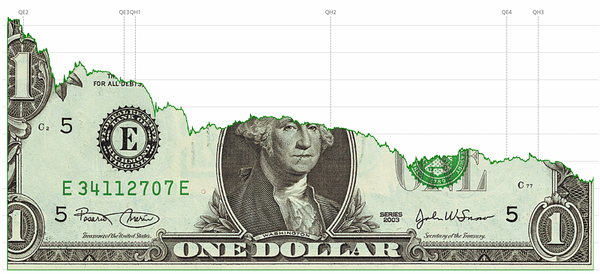Can the corporation of the future be fully decentralized?
What is a DAO?
A decentralized autonomous organization (DAO), sometimes called a decentralized autonomous corporation (DAC), is an organization represented by rules encoded as a computer program that is transparent, controlled by the organization members and not influenced by a central government. A DAO's financial transaction record and program rules are maintained on a blockchain.
~Wikipedia
At first glance, this seems like a lot to unpack, but the principles are clear:
- The entity is meant to be self-regulating, which means governance consists of a set of rules that will be enabled once a certain requirement has been met - for example, an investment decision based on predetermined criteria
- Being non-hierarchical stems from a DAO not having a top-down management structure, so programming rules and the stakeholders decide the fate of the company and a blockchain helps ensure continuity, transparency, and decentralization
- The trustless nature of a a permissioned blockchain, compared to a public chain, ensures those who have “bought into” the DAO are in control and the ultimate beneficiaries, which in effect performs the fiduciary obligation of the organization

The Maker DAO story
Bitcoin can be viewed as the first ever fully-functional DAO - it has a pre-programmed set of rules, functions autonomously and is coordinated through a distributed consensus protocol. Since then, the use of smart contracts has been widely enabled on the Ethereum protocol, which has brought the creation of DAOs closer to the general public and shaped their current look.
Anyone interested in DAOs should review the story of Maker, widely viewed as one of the most prominent and successful DAOs created to date.
A widely anticipated implosion in early 2020 led to many (premature) calls for its demise, but the issues identified are important and will make DAOs stronger in the future. Today, there is a vibrant ecosystem around Maker, and the story is clearly far from over!
Is the company of the future a DAO?
A common example of a failed DAO in action was “The DAO,” an investor-directed venture capital vehicle, which had record high token sales in 2016, offering what seemed like an innovative approach - the fund would cut out the principal-agent dilemma and through that put the power and returns back into the hands of the investors and token holders. Didn’t quite work out that way.
That said, like any market, we are seeing increased maturity, particularly now, where decentralized finance (DeFi) is becoming increasingly accepted. A DAO can be the leading layer of the organization or be implemented as an autonomous part within an organization. Often, in its current forms, a DAO fulfills the role of the former, rather than the latter. All of this can be tailored to the needs of the owners and the governance that was created by them.
If AngelList, Stripe Atlas or anyone else in the off-chain world starts automating the creation of DAOs for masses, they’ll be a $100B + company.
— ✨ Sriram Krishnan ✨ (@sriramkri) April 24, 2021
If anyone is already working on creating DAOs on demand (rules, context etc input, DAO output) would love to connect.
In many ways, we can assume that the DAO is one of the many first movers into the field of autonomous organizational structures, paving the way for decentralized business models in the future. Look out.
AND IT’S OFFICIAL!! 🤠#Wyoming will recognize #DAOs as a new type of LLC, effective July 1! Thank you legislators & @GovernorGordon for building on Wyoming’s history of inventing the LLC, which all other states followed roughly a decade later. We’re doing it again! A thread👇. 1/ pic.twitter.com/4x7VpcPTkk
— Caitlin Long 🔑 (@CaitlinLong_) April 21, 2021
Summary
DAOs provide another layer of separation from the handcuffs that come with centralized finance and traditional institutions. By decentralizing organizations and automating various processes, civil society institutions can truly serve their target audience in ways that are both beneficial and transparent.




